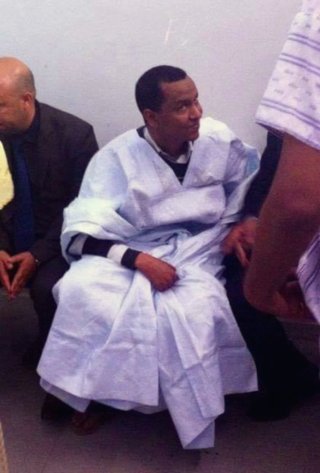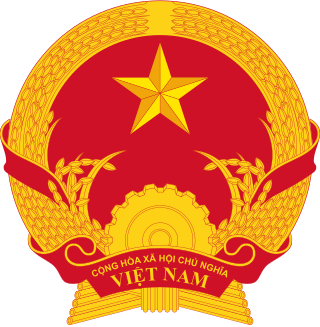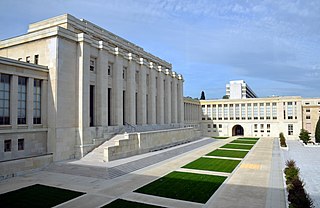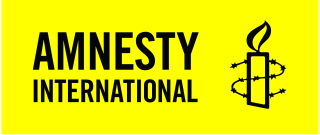Related Research Articles

Human Rights Watch (HRW) is an international non-governmental organization headquartered in New York City that conducts research and advocacy on human rights. The group pressures governments, policymakers, companies, and individual human rights abusers to denounce abuse and respect human rights, and often works on behalf of refugees, children, migrants, and political prisoners.

Peter Benenson was a British barrister, human rights activist and the founder of the human rights group Amnesty International (AI). He refused all honours for most of his life, but in his 80s, largely to please his family, he accepted the Pride of Britain Award for Lifetime Achievement in 2001.

A prisoner of conscience (POC) is anyone imprisoned because of their race, sexual orientation, religion, or political views. The term also refers to those who have been imprisoned or persecuted for the nonviolent expression of their conscientiously held beliefs.
Eric Baker was a British activist and one of the founders of the human rights group Amnesty International, and the second Secretary-General of the organization. He was also a founder of the Campaign for Nuclear Disarmament (CND).

Pierre Sané is the founder and president of the Imagine Africa Institute. He was UNESCO’s Assistant Director-General for Social and Human Sciences from May 2001 - June 2010. He was Secretary General of Amnesty International from October 1992 to April 2001.

Human rights in Vietnam are among the poorest in the world, as considered by various domestic and international academics, dissidents and non-governmental organizations (NGOs) such as Amnesty International (AI), Human Rights Watch (HRW), and the United Nations High Commissioner for Human Rights (OHCHR).
A human rights defender or human rights activist is a person who, individually or with others, acts to promote or protect human rights. They can be journalists, environmentalists, whistleblowers, trade unionists, lawyers, teachers, housing campaigners, participants in direct action, or just individuals acting alone. They can defend rights as part of their jobs or in a voluntary capacity. As a result of their activities, human rights defenders (HRDs) are often subjected to reprisals including smears, surveillance, harassment, false charges, arbitrary detention, restrictions on the right to freedom of association, physical attack, and even murder. In 2020, at least 331 HRDs were murdered in 25 countries. The international community and some national governments have attempted to respond to this violence through various protections, but violence against HRDs continues to rise. Women human rights defenders and environmental human rights defenders face greater repression and risks than human rights defenders working on other issues.
Human rights in the Philippines are protected by the Constitution of the Philippines, to make sure that persons in the Philippines are able to live peacefully and with dignity, safe from the abuse of any individuals or institutions, including the state.

Youth for Human Rights International (YHRI) is an American non-profit organization. Founded and largely staffed and financed by Scientologists, its stated mission is "To teach youth around the globe about human rights, thus helping them to become valuable advocates for the promotion of tolerance and peace."

The International Rehabilitation Council for Torture Victims (IRCT) is an independent, international health professional organization that promotes and supports the rehabilitation of torture victims and works for the prevention of torture worldwide. Based in Denmark, the IRCT is the umbrella organization for over 160 independent torture rehabilitation organizations in 76 countries that treat and assist torture survivors and their families. They advocate for holistic rehabilitation for all victims of torture, which can include access to justice, reparations, and medical, psychological, and psycho-social counseling. The IRCT does this through strengthening the capacity of their membership, enabling an improved policy environment for torture victims, and generating and share knowledge on issues related to the rehabilitation of torture victims. Professionals at the IRCT rehabilitation centers and programs provide treatment for an estimated 100,000 survivors of torture every year. Victims receive multidisciplinary support including medical and psychological care and legal aid. The aim of the rehabilitation process is to empower torture survivors to resume as full a life as possible. In 1988, IRCT, along with founder Inge Genefke, was given the Right Livelihood Award "for helping those whose lives have been shattered by torture to regain their health and personality."
The Coalition for the International Criminal Court (CICC) is an international network of NGOs, with a membership of over 2,500 organizations worldwide advocating for a fair, effective and independent International Criminal Court (ICC). Coalition NGO members work in partnership to strengthen international cooperation with the ICC; ensure that the court is fair, effective and independent; make justice both visible and universal, and advance stronger national laws that deliver justice to victims of war crimes, crimes against humanity and genocide. The CICC Secretariat is hosted by the World Federalist Movement-Institute for Global Policy (WFM-IGP) and has offices in New York City, near the United Nations (UN), and in The Hague, The Netherlands. Additionally, the CICC has regional offices in Belgium, and Peru.
Amnesty International South Africa is a South African organisation that works to end human rights abuses along with its affiliate organization Amnesty International.

An international organization or international organisation, also known as an intergovernmental organization or an international institution, is a stable set of norms and rules meant to govern the behavior of states and other actors in the international system. Organizations may be established by a treaty or be an instrument governed by international law and possessing its own legal personality, such as the United Nations, the World Health Organization and NATO. International organizations are composed of primarily member states, but may also include other entities, such as other international organizations, firms, and nongovernmental organizations. Additionally, entities may hold observer status.

Amnesty International is an international non-governmental organization focused on human rights, with its headquarters in the United Kingdom. The organization says it has more than ten million members and supporters around the world. The stated mission of the organization is to campaign for "a world in which every person enjoys all of the human rights enshrined in the Universal Declaration of Human Rights and other international human rights instruments." The organization has played a notable role on human rights issues due to its frequent citation in media and by world leaders.
The Ain O Salish Kendra (ASK) is a non-government, a national legal aid and human rights organisation in Bangladesh. It is one of the leading human rights organizations of the country and is highly active in issues of legal and social support to the dis empowered, particularly women, working children and workers as well as exposing human rights abuses by Bangladeshi security forces. It consults with Amnesty International and with the United Nations Economic and Social Council (ECOSOC). The centre was established by prominent Bangladeshi lawyers and activists in 1986. Md Nur Khan acts as the executive director since August 2022.
Criticism of Amnesty International includes claims of selection bias, as well as ideology and foreign policy bias against either non-Western countries or Western-supported countries. Governments that have criticised Amnesty International (AI) include those of Israel, the Democratic Republic of the Congo, China, Vietnam, Russia, Chile and the United States, which have complained about Amnesty International for what they assert constituted one-sided reporting, or a failure to treat threats to security as a mitigating factor. The actions of these governments—and of other governments critical of AI—have been the subject of human rights concerns voiced by Amnesty. The Catholic Church has also criticized Amnesty for its stance on abortion, particularly in Catholic-majority countries.
Amnesty International Thailand (AITH), also known as Amnesty Thailand or AI Thailand, is a non-governmental organisation (NGO) focused on the protection of human rights in Thailand and worldwide with more than 1,000 members across Thailand. Amnesty Thailand is one of more than 70 "sections" that make up Amnesty International worldwide.

Amnesty International Ghana is a section of the Amnesty International network and is part of the global movement focused on the defending and protecting human rights. AI Ghana's mission is to create a viable and sustainable nation-wide membership with the view to championing the course of and promoting respect for human rights in Ghana and beyond. The non-governmental organisation focuses on the protection of human rights in Ghana through undertakes advocacy and campaigns to persuade the powers that be.
Jessica Neuwirth is an American lawyer and international women's rights activist. She is one of the founders of Equality Now, an international women's rights organizations established in 1992, and the founder and director of Donor Direct Action, a project hosted by the Sisterhood is Global Institute to support women's organizations around the world. She is the founder and President Emerita of the ERA Coalition and Fund for Women's Equality.
References
- ↑ "Who We Are". Amnesty International Nepal. Retrieved 14 September 2021.
{{cite web}}: CS1 maint: url-status (link) - ↑ "AI Nepal Statute, By-laws, Procedures, Guidelines, Policies". Amnesty International Nepal. Retrieved 14 September 2021.
{{cite web}}: CS1 maint: url-status (link) - ↑ Childs, Peter; Storry, Mike, eds. (2002). "Amnesty International". Encyclopedia of Contemporary British Culture. London: Routledge. pp. 22–23.
- ↑ "AGNI Online: Amnesty International: Myth and Reality by Linda Rabben". agnionline.bu.edu. 15 October 2001. Retrieved 10 June 2021.
- ↑ McKinney, Seamus (29 September 2018). "Sir Louis Blom-Cooper: Campaigning lawyer had strong links with Northern Ireland". The Irish News. Retrieved 10 June 2021.
- ↑ "Who we are". Amnesty International Nepal. www.amnestynepal.org. Retrieved 14 September 2021.
{{cite web}}: CS1 maint: url-status (link) - ↑ "National Board". Amnesty International Nepal.
{{cite web}}: CS1 maint: url-status (link) - ↑ "National Secretariat". Amnesty Nepal. www.amnestynepal.org. Retrieved 15 September 2021.
{{cite web}}: CS1 maint: url-status (link) - ↑ "Why Amnesty opposes the death penalty without exception". www.amnesty.org. Retrieved 17 June 2019.
- ↑ Amnesty International Charity Limited Report and financial statements for the year ended 31 March 2011, p. 8, Paragraph 10.